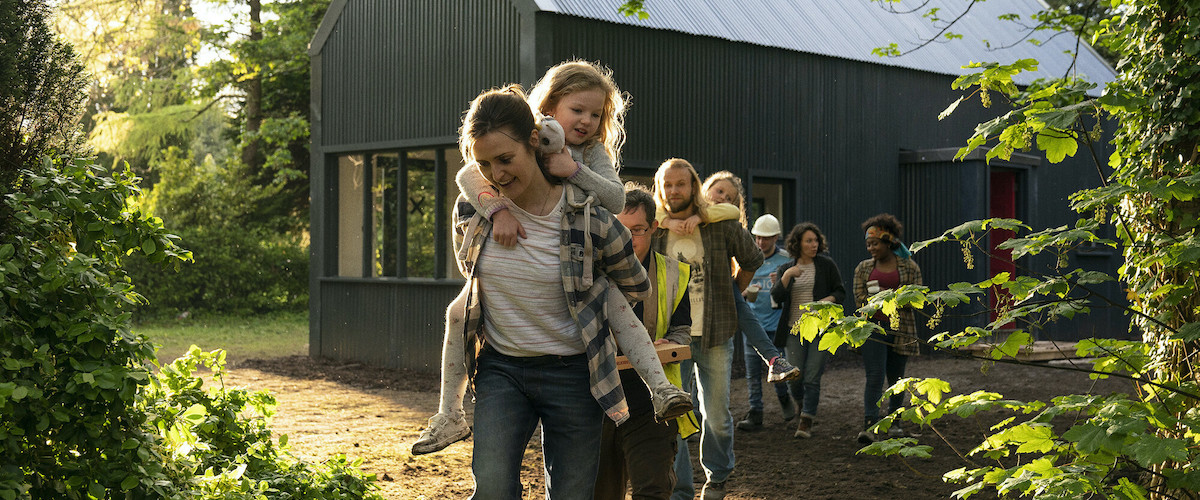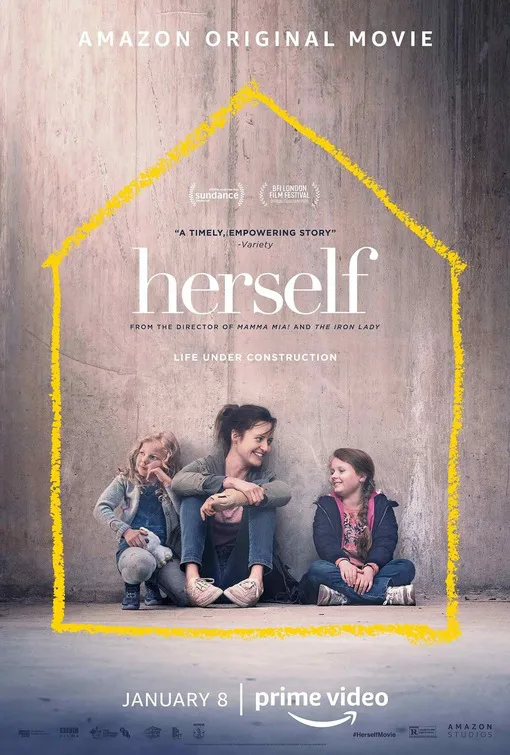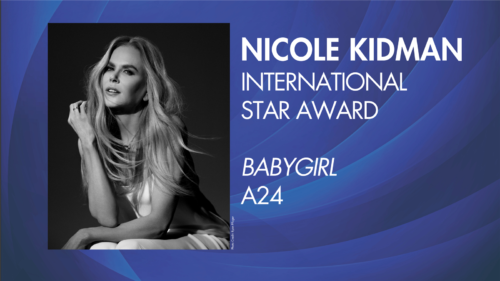Sandra (Clare Dunne) has a code word with her daughter Emma (Ruby Rose O'Hara). If Sandra whispers "black widow," then Emma knows to run for help, as happens in the harrowing first scene of "Herself," an Irish film written by Dunne, and directed by Phyllida Lloyd. Sandra takes one look at her husband (played with frightening immediacy by Ian Lloyd Anderson) and whispers the code word. Emma runs to a nearby store and tells the clerk to call the "garda." Meanwhile, Gary beats Sandra to a pulp. This first scene does some very heavy-lifting, establishing the close relationship between Sandra and her two daughters (O'Hara and Molly McCann), as well as Sandra's terrifying marriage, beset by financial woes. Fleeing the marriage means fleeing security, searching for a new place to live, under increasingly dire circumstances, in an overcrowded housing market. Sandra then has a revelation: What if she built her own house?
Leading up to Sandra's revelation is a harried and fragmented sequence of scenes, showing Sandra's desperate struggle to keep her family afloat. Squatting in a hotel room, she searches for housing, works two jobs, and drops the kids off at her ex-husband's every weekend for court-ordered visitation. She cleans house for Peggy, an elderly woman (Harriet Walter) who had employed Sandra's mother before her. All is chaos for Sandra. Initial help comes from an unexpected source.
Finding people to build the house with her makes up the majority of "Herself." Sometimes help comes by accident and/or chance, and sometimes by Sandra making a direct "ask." In line at the hardware store, disoriented by the clerk's rude manner when she asks a simple question about supplies, Sandra meets Aido (Conleth Hill), retired former contractor. Sandra asks if he would help her. He turns her down. But he knew Gary, and has a horrible opinion of Gary, so he can't help but feel for Sandra. (These scenes highlight a common aspect of Irish life: Talk to someone for 10 minutes, and you'll find out you have a couple people in common.) Sandra must be persistent in the face of towering odds. She has to ask people to help her for free. All the while, Gary looms as an ever-present menace, protective restraining order or no.
Phyllida Lloyd, who helmed "Mamma Mia!," is not afraid of reaching for big emotions, utilizing inspirational needle-drops and montages that show the house coming into existence. But there's something else going on here, something that makes all of this a deeper and more powerful story. Part of it is about teamwork: this is not a professional construction crew and nobody knows what they're doing. But they figure it out. With this, comes intense pleasure of building something with your own hands, of doing something nobody thinks you can do, or nobody wants you to do. For various reasons, Sandra has to keep the house a secret: from her ex-husband, from social services, from everyone.
"Herself" has embedded within it a biting commentary about how bureaucracies—such as welfare and/or social services—tend to keep people in the cycle, as opposed to helping them rise out of it. Bureaucracies drift towards the gigantic, the overly-complicated, requiring endless confusing forms and a baffling maze of hoops to jump through in order to get one tiny thing accomplished. No wonder people give up. Dystopian films like "Brazil," or dystopian novels like 1984 and The Trial show the end result of bureaucracy run amok. You are punished if you want to make things better for yourself. Sandra buckles under the weight of this.
Even with the inspiring sequences of people coming together, the darkness of that critique is ever-present. "Herself" is not a character study. Sandra is persistent, but only because the situation has forced her to be so. Suffering from PTSD and nerve damage in her wrist from when Gary stomped on it, she can barely make it through any given day.
And here is where Dunne really shines. Sandra struggles with shame that she has fallen so low. "Herself" is excellent with how difficult and shameful it can be to ask for help. Shame is such a terrible experience people will do literally anything to avoid it, and Sandra's battle with that shame spiral is the most insightful aspect of the film. It's profound on a deeper level than seeing a group coming together to build something. Not only is asking for help hard, but saying "Thank you" is harder, because the shame is still present, particularly if you can't pay anyone back, at least not right away. When you're in that state, other people's generosity can feel like a rebuke. This, too, is a cycle, but an emotional one. It's designed to keep you stuck.
In the year after my father died, I was so disoriented by grief I was unable to unpack the boxes into my new apartment. One night, a group of friends showed up and unpacked everything. They put away my hundreds of books, hung all my pictures, and made a party out of it. I felt ashamed at my incompetence and helplessness. I was in tears when I said goodbye to my friend Mike, who spent the day building bookshelves for me. I felt a mix of gratitude and shame, which he saw all over my face. He said to me, breezily, "Listen, baby, what we did today was a barn-raising."
Including insightful elements like shame-spirals, fear, and helplessness, "Herself" shows an unexpectedly realistic barn-raising.
Now available on Amazon Prime.




















